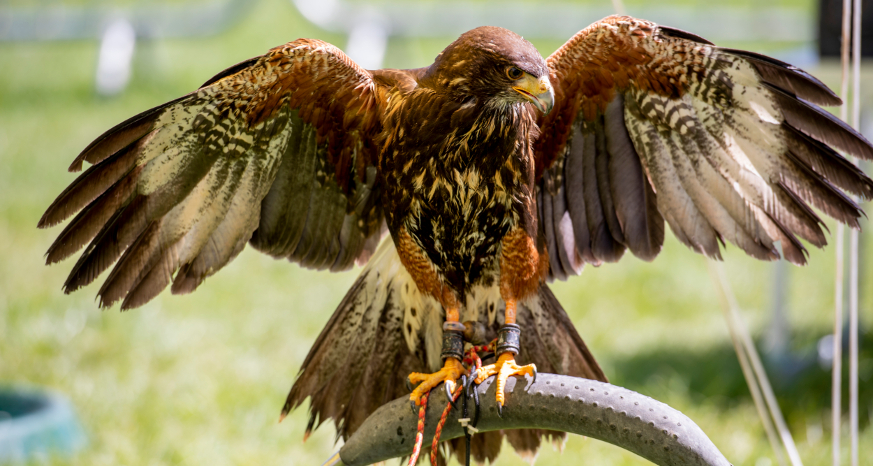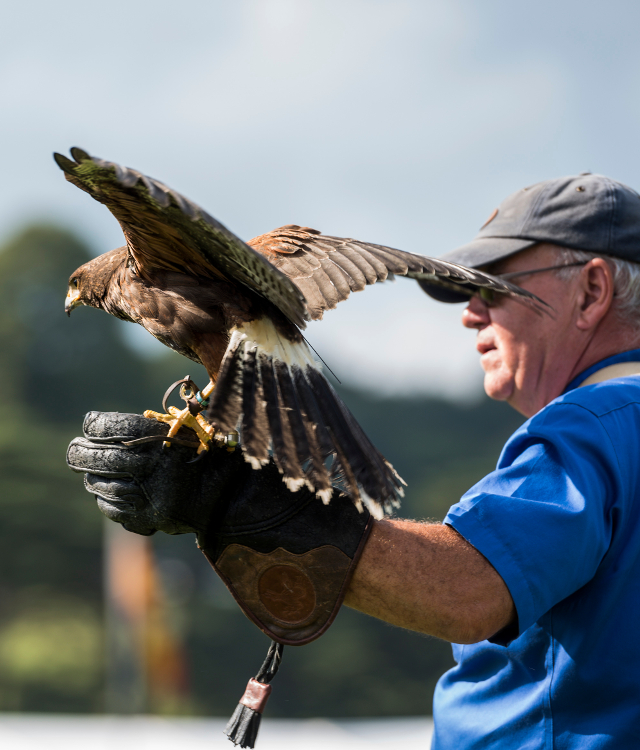Rural skills take centre stage for half-term in the Chatsworth Farmyard
Traditional rural skills like falconry and dry-stone walling are being taught in hands-on sessions at the Chatsworth Farmyard this spring half term (26 May-3 June) as well as the chance for budding young farmers to muck-in and help care for farmyard animals including horses, pigs and sheep on select days.
Dry stone walling, fly fishing, wool weaving and spinning, falconry and a host of other rural skills (see below for dates) are being taught by seasoned experts to show children and families the centuries old skills still used in rural communities.
Visitors can get ‘hands on’ and build a mini dry stone wall as well as learning about their history from Sally Hodgson who has nearly 30 years experience of dry stone walling and is committed to retaining the heritage of the beautiful Derbyshire landscape.
SMJ Falconry are family-operated bird of prey specialists and will be displaying birds of all sizes as well as giving a flying display. Meanwhile Stuart Crofts will be making fishing flies to imitate the natural food that trout feed on and children will be able to make their own flies in the farmyard.
And any budding young farmers, aged between 6-11, will be able to join the farmyard team for some hands-on involvement in caring for the Chatsworth farmyard animals.
Meanwhile, in its famous 105-acre garden, Chatsworth will be celebrating its fabulous waterworks. Free garden tours will take in water features including the 18th century Cascade, Willow Tree Fountain, Ring Pond and Emperor Fountain, which will be played at its full height of 90 metres.
Spring half-term
Saturday and Sunday 26 & 27 May, Sally Hodgson’s dry stone walling: build your own dry stone wall and hear about the history of these iconic feature of the Derbyshire landscape.
Monday 28 May, SMJ falconry: get up close and personal with more than a dozen magnificent birds of prey.
Tuesday 29 May, Stuart Crofts river creatures: Get close up to the many fascinating creatures found in the river Derwent.
Tuesday 29 May, Margaret Robson, wool spinner: Learn about the process of turning fleece to wool by spinning and weaving.
Wednesday 30 May, Stuart Crofts fly tying workshop: make fishing flies to imitate the natural food that trout feeding on.
Thursday 31 May, Margaret Robson, wool spinner: Learn about the process of turning fleece to wool by spinning and weaving.
Friday 1 June, Bobbie Harvey, Willow & wool workshop: Use simple weaving techniques to make willow and wool “god’s eyes” decorations.
Various dates from 30 May-22 August, join the farmyard team in caring for the farmyard animals.
Chatsworth reopened on 24 March 2018 following the biggest restoration and conservation of the house, garden and park since the 1820s. The 10-year long programme, costing more than £32m, sees Chatsworth restored to its full glory, inside and out.
The Chatsworth Renewed exhibition, running between March and October, highlights the work of those involved in the restoration process. From rebuilding the Belvedere turrets to replacing vast tracts of lead on the roof; carving the tiniest details in stone using dentistry tools to replacing huge blocks in the walls; careful restoration of priceless artworks to the renovation of famous water features in the garden; over the last decade Chatsworth has been fully restored and made ready for the next century.
In 1981, the charitable Chatsworth House Trust was set up by the 11th Duke to ensure the long-term survival of the house and collection. Since 1949 the entrance money paid by more than 25 million visitors has made a vital contribution to the maintenance of the house and garden and it is this income, rather than any public funding, that has enabled the current restoration works to be completed.




